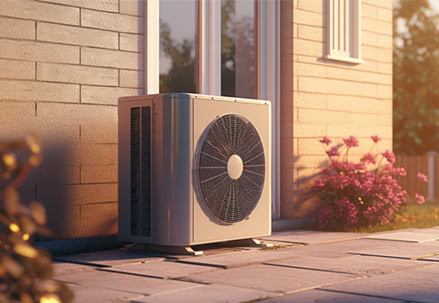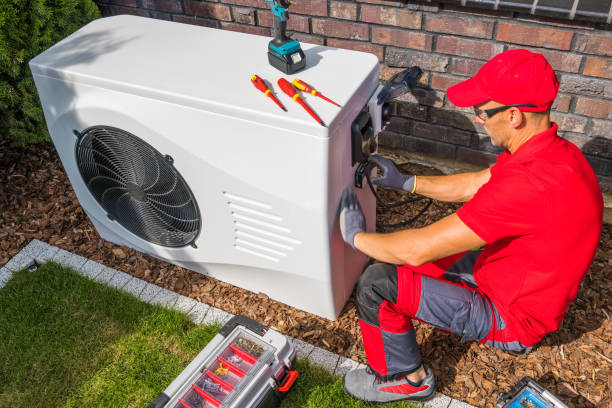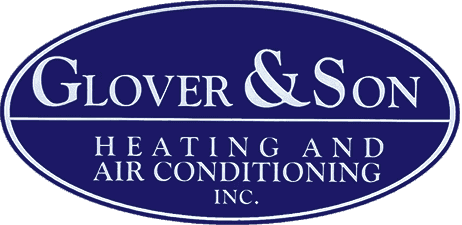
As homeowners in the Bay Area of California look for efficient and sustainable ways to heat and cool their homes, heat pumps have become an increasingly popular option.
Known for their energy efficiency and versatility, heat pumps offer a promising solution for the region's moderate climate. But are heat pumps really worth the investment?
In this article, we'll explore the benefits and considerations of installing a heat pump in your Bay Area home, helping you make an informed decision about whether this technology is the right choice for you.
Heat pumps operate on the principle of heat transfer, moving heat from one place to another rather than generating it. This process is made possible through the use of a refrigerant, which absorbs and releases heat as it circulates between the indoor and outdoor units of the heat pump.
In cooling mode, the refrigerant absorbs heat from inside your home and releases it outside, similar to how a traditional air conditioner works. This is achieved through the evaporator coil inside the indoor unit, where the refrigerant evaporates, absorbing heat from the indoor air. The refrigerant then travels to the outdoor unit, where it releases the absorbed heat and condenses back into a liquid.
During colder weather, the cycle is reversed. The refrigerant absorbs heat from the outdoor air—even when temperatures are low—and carries it indoors. This is accomplished by reversing the flow of the refrigerant using a component called a reversing valve. The refrigerant absorbs heat from the outdoor unit's coil and then travels to the indoor unit, where it releases the heat into your home. This ability to transfer heat in both directions makes heat pumps an efficient and versatile option for year-round climate control, particularly in the moderate climate of the Bay Area.

When it comes to cooling your home, both air conditioners (AC) and heat pumps are common options, but they operate differently and offer unique benefits. An air conditioner is designed solely for cooling; it removes warm air from your home and releases it outside, leaving your indoor environment cool and comfortable. In contrast, a heat pump provides both heating and cooling by transferring heat.
During the summer, a heat pump works like an AC, extracting heat from your home and expelling it outdoors. In the winter, the process reverses, and the heat pump extracts heat from the outside air (even in cooler temperatures) and brings it inside to warm your home.
The versatility of heat pumps makes them particularly attractive for homeowners in the Bay Area, where the climate is relatively mild year-round. This dual functionality can result in significant energy savings, as a single system efficiently manages both heating and cooling needs.
While traditional AC units are effective for cooling, they require a separate heating system, which can lead to higher heating installation and operational costs. By choosing a heat pump, Bay Area residents can enjoy a streamlined, cost-effective solution that provides comfort throughout all seasons.
Heat pumps are renowned for their energy efficiency, making them an attractive option for homeowners seeking to reduce energy consumption and lower utility bills. Unlike traditional heating systems that generate heat through combustion or electric resistance, heat pumps move heat from one place to another, which requires significantly less energy.
In fact, heat pumps can provide up to three times more heating energy to a home than the electrical energy they consume. This high efficiency is particularly beneficial in the Bay Area's moderate climate, where extreme temperatures are rare, allowing heat pumps to operate at optimal efficiency year-round.
The energy efficiency of heat pumps is also reflected in their cooling performance. During the summer months, a heat pump functions similarly to an air conditioner, but with the added benefit of typically being more efficient in transferring heat out of the home.
Modern heat pumps come with advanced features such as variable-speed compressors and smart thermostats, further enhancing their efficiency and allowing homeowners to customize their climate control settings. By choosing a heat pump, Bay Area residents can enjoy substantial energy savings, reduce their carbon footprint, and contribute to a more sustainable environment.
Heat pumps are designed to be durable and long-lasting, typically offering a lifespan of 15 to 20 years with proper maintenance. The longevity of a heat pump can be influenced by several factors, including the quality of the installation, the frequency of maintenance, and the intensity of usage.
In the moderate climate of the Bay Area, where extreme temperatures are uncommon, heat pumps often experience less strain compared to regions with harsher climates, potentially extending their lifespan. Regular heat pump maintenance, such as cleaning filters, checking refrigerant levels, and ensuring that the system is free from debris, plays a crucial role in keeping a heat pump running efficiently and prolonging its operational life.
Investing in routine professional inspections is also vital for maximizing the longevity of your heat pump. Our HVAC technicians can identify and address minor issues before they escalate into major problems, ensuring that your system operates smoothly year-round.
Additionally, advancements in heat pump technology have led to the development of more robust and efficient systems, further enhancing their durability. By adhering to a regular maintenance schedule and addressing repairs promptly, Bay Area homeowners can enjoy the benefits of their heat pump systems for many years, making it a cost-effective and reliable solution for home heating and cooling.
Yes, heat pumps can often be integrated with your existing ductwork, making them a versatile option for homeowners looking to upgrade their heating and cooling systems without extensive modifications. If your home already has a ducted system in place, such as from a traditional furnace or central air conditioner, a heat pump can usually be connected to these ducts, allowing for efficient distribution of conditioned air throughout your home. This compatibility can significantly reduce installation costs and time, as there is no need to install new ducts.
However, it’s important to have your existing ductwork inspected by a professional HVAC technician before installing a heat pump. The ducts must be in good condition, properly sealed, and appropriately sized for the new system to ensure optimal performance. Leaky or improperly sized ducts can lead to energy loss and reduced efficiency, undermining the benefits of a heat pump. If necessary, your technician can recommend any adjustments or repairs needed to your ductwork to maximize the efficiency and effectiveness of your new heat pump system. By ensuring your ducts are in good shape, you can enjoy the full range of benefits that heat pumps offer in terms of energy savings and comfort.

Yes, there are often incentives and rebates available for homeowners who choose to install heat pumps, particularly in regions like the Bay Area where energy efficiency and sustainability are prioritized. These incentives can come from federal, state, or local government programs, as well as from utility companies.
For example, the federal government offers tax credits for energy-efficient home improvements, which can include heat pump installations. Additionally, California has various state-level programs that provide rebates and incentives to encourage the adoption of energy-efficient technologies, including heat pumps.
Local utility companies, such as PG&E in the Bay Area, also offer rebates for installing energy-efficient heating and cooling systems. These rebates can help offset the initial cost of purchasing and installing a heat pump, making it a more affordable option for homeowners.
To take advantage of these incentives, it’s important to research the specific programs available in your area and ensure that the heat pump you choose meets the eligibility criteria. Working with a knowledgeable HVAC contractor like Glover & Son Heating and Air Conditioning can also help you navigate the available incentives and maximize your savings. By taking advantage of these programs, you can reduce the upfront costs of installing a heat pump while contributing to a more sustainable future.
Heat pumps are generally designed to operate quietly, making them a comfortable addition to your home without causing significant noise disturbances. Modern heat pump systems incorporate advanced technologies and sound-dampening features that minimize operational noise.
Typically, the outdoor unit, which contains the compressor and fan, is the primary source of noise. However, advancements in design and materials have significantly reduced the sound levels produced by these components. On average, a well-maintained heat pump emits noise levels ranging from 40 to 60 decibels, which is comparable to the sound of a normal conversation or background music.
Indoor units of heat pump systems are even quieter, often operating at noise levels lower than 30 decibels, making them barely noticeable during operation. However, if you do notice unusual or loud noises coming from your heat pump, it could indicate an issue that requires professional attention.
Common causes of excessive noise include loose components, debris in the outdoor unit, or a failing motor. Regular maintenance and timely repairs can help keep your heat pump running smoothly and quietly. If noise is a concern for you, Glover & Son Heating and Air Conditioning can help you select and install a heat pump system designed for ultra-quiet operation, ensuring both comfort and peace in your Bay Area home.
Heat pumps offer a versatile and energy-efficient solution for both heating and cooling, making them an excellent choice for homeowners in the Bay Area. With their ability to use existing ductwork, compatibility with various incentive programs, and quiet operation, heat pumps provide numerous benefits that enhance home comfort and reduce energy costs. Their efficiency and dual functionality make them particularly well-suited for the moderate climate of the Bay Area, ensuring year-round comfort with lower environmental impact.
Investing in a heat pump means choosing a sustainable and cost-effective option that can significantly improve your home's indoor air quality and overall energy efficiency. Whether you are considering a new installation or upgrading an existing system, heat pumps are a smart choice that can meet your heating and cooling needs while contributing to a greener future. Contact Glover & Son Heating and Air Conditioning today to learn more about how heat pumps can benefit your home and to schedule a consultation with our experienced team. In the Bay Area, heat pumps are truly worth the investment.

Glover & Son Heating and Air Conditioning, INC is your go-to solution for HVAC services in Fremont and the surrounding Bay Area. As a family-owned and locally operated business since 1998, we're here to help you with superior heating and cooling that's second to none.